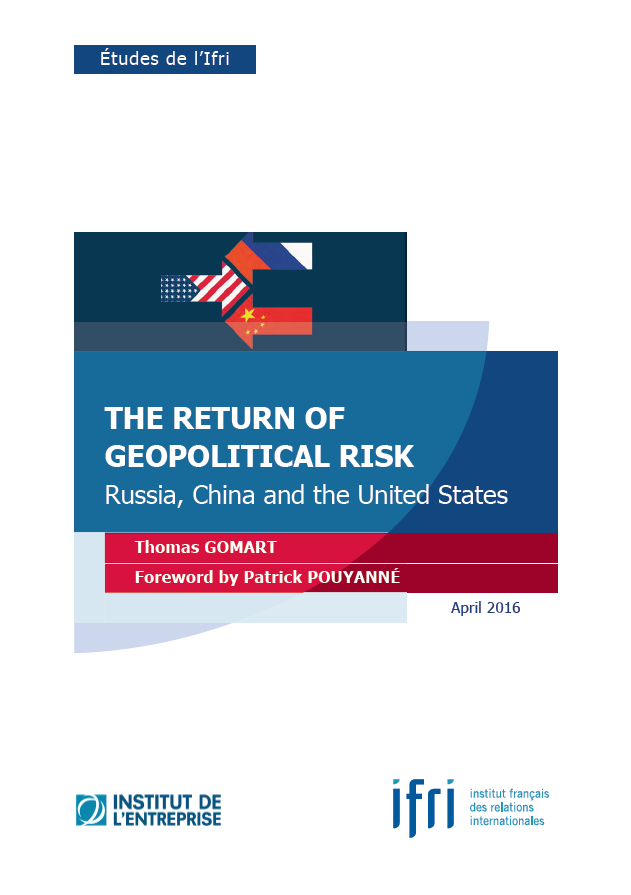Cyberspace Governance in China: Evolution, Features and Future Trends
As China’s political relations with most of the world’s technologically advanced states have worsened, Beijing has put in place the world’s most comprehensive regulatory and administrative system for governing cyberspace.
Fishing for Chips: Assessing the EU Chips Act
China, the United States, and the European Union (EU) are currently developing strategies for semiconductors aimed at financing R&D and the installation of new factories on their territories, in particular through subsidies. The EU Chips Act, announced in February 2022, represents a real break in Europe's industrial policy.
The Space Downstream Sector: Challenges for the Emergence of a European Space Economy
As the commercial anchor of the space sector, the downstream sector plays an essential role in Europe where industry focuses mainly on application markets and where socio-economic considerations have become the main driver of space policy.
Health Data Governance: Lessons Learned from the COVID-19 Pandemic in Europe, China, and the United States
The health crisis has triggered a tectonic movement in the recomposition of health data governance and protection models around the world, while accelerating the investment of large digital companies in the field of e-health.
Europe in the Geopolitics of Technology: Connecting the Internal and External Dimensions
To respond to growing global competition, the EU has made notable progress on the internal dimension of technology policy over the past 3 years. It is now also seeking to adapt its foreign policy – from the transatlantic relationship to global partnerships – to technological challenges.
Space as a Key Element of Europe's Digital Sovereignty
At the end of year 2020, the European space sector finds itself at a crossroads between challenges and opportunities. While the 2019 European Space Agency (ESA) Ministerial Conference marked a progression in terms of budgets, a sign of renewed space ambitions, the technological and financial acceleration from the United States represents a disruptive scenario that poses threats to the continuity of European space capabilities.
GovTech, The New Frontier in Digital Sovereignty
The COVID-19 crisis has been a catalyst for a surge in the GovTech market, while triggering debate around the use of new technologies in the public health response to the pandemic. More broadly, the health crisis has shed a new light on the strategic importance of some domains relevant to GovTech such as HealthTech, smart cities and EdTech.
Israeli Cyberpower: The Unfinished Development of the Start-up Nation?
Israel’s economic success in the cyber sector is undeniable. It is due to the development of an ecosystem encouraging the mastery of digital innovation.
The Potential of Digital Technologies for Centralized Electricity Systems in Sub-Saharan Africa
Affordable and reliable electricity access is a prerequisite for the economic development of sub-Saharan Africa.
[Videoconference] Japan’s Cyber-Security Strategy: From the Olympics to the World
A videoconference on Japan’s cyber-security strategy was held by Ifri's Center for Asian Studies on September 15, 2020.
Cyberspace Governance in China: Evolution, Features and Future Trends
As China’s political relations with most of the world’s technologically advanced states have worsened, Beijing has put in place the world’s most comprehensive regulatory and administrative system for governing cyberspace.
Israeli Cyberpower: The Unfinished Development of the Start-up Nation?
Israel’s economic success in the cyber sector is undeniable. It is due to the development of an ecosystem encouraging the mastery of digital innovation.

5G and the US-China Tech Rivalry – a Test for Europe’s Future in the Digital Age
The US-EU Rivalry for Data Protection: Energy Sector Implications
The General Data Protection Regulation and the energy sector
Digital Transformation of the Industry: The Franco-German Challenge
The issue of the digital transformation of the industry provoked in France as in Germany the return of the state and the introduction of a subsidiary industrial policy. Feeling threatened in its industrial leadership, Germany mobilized its resources through industry 4.0 by building a vision around the concept of “cyber-physical system” before developing in each Land an accompanying offer. France has forged the concept of the industry of the future by following a logic of modernization of the production tool, reinforcing particularly the automation and building on the integration of new technological bricks.
European Space Programs and the Digital Challenge
The exploration of space and the use of digital tools and systems have in common to be quite recent in human history but to have changed the world, society and economy by connecting people and things, breaking down borders, and redistributing knowledge, power and control.

The Return of Geopolitical Risk - Russia, China and the United States
The year 2014 was defined by the conflict in Ukraine, the emergence of Daesh, and tensions between China and Japan. As for 2015, it has witnessed the spread of Daesh, the conflict in Yemen, the Greek crisis, revelations about the activity of the National Security Agency (NSA), the migrant crisis, and a ramping-up of terrorist attacks.
MOOCs: Re-Creating Affordable Education
This piece is the thrid in a series of four Chroniques américaines on education in the United States, published this week.
Support independent French research
Ifri, a foundation recognized as being of public utility, relies largely on private donors – companies and individuals – to guarantee its sustainability and intellectual independence. Through their funding, donors help maintain the Institute's position among the world's leading think tanks. By benefiting from an internationally recognized network and expertise, donors refine their understanding of geopolitical risk and its consequences on global politics and the economy. In 2024, Ifri will support more than 70 French and foreign companies and organizations.


















